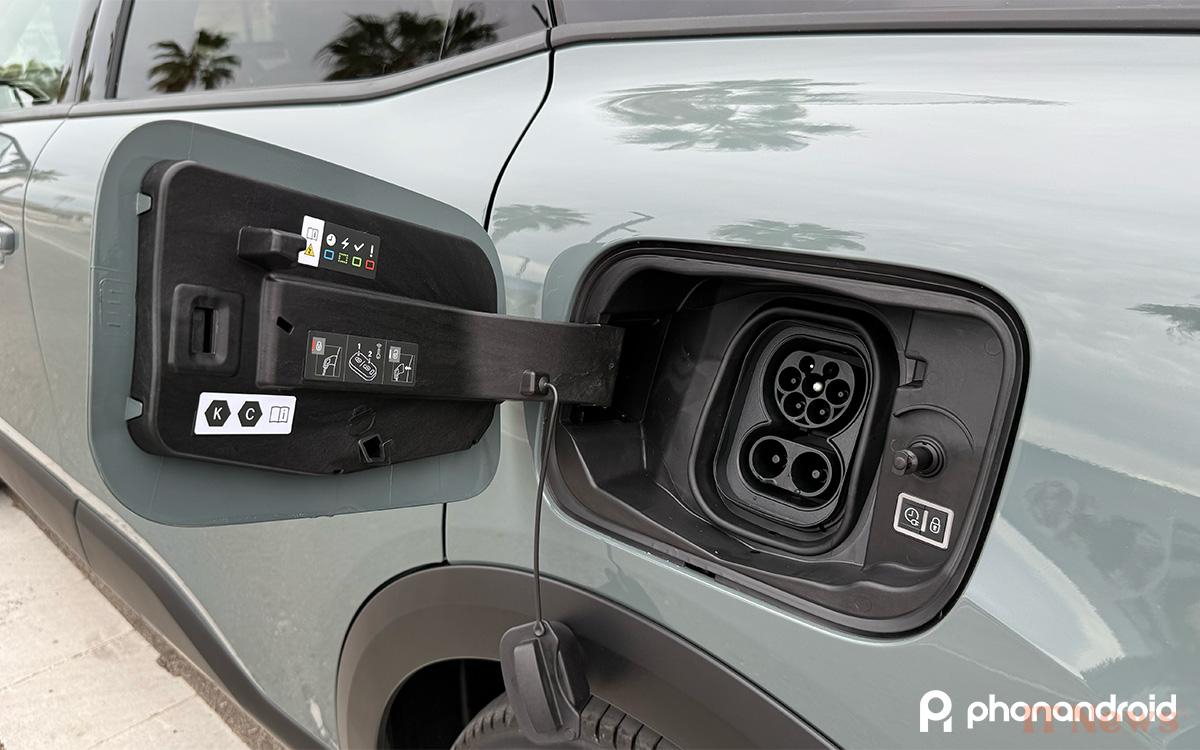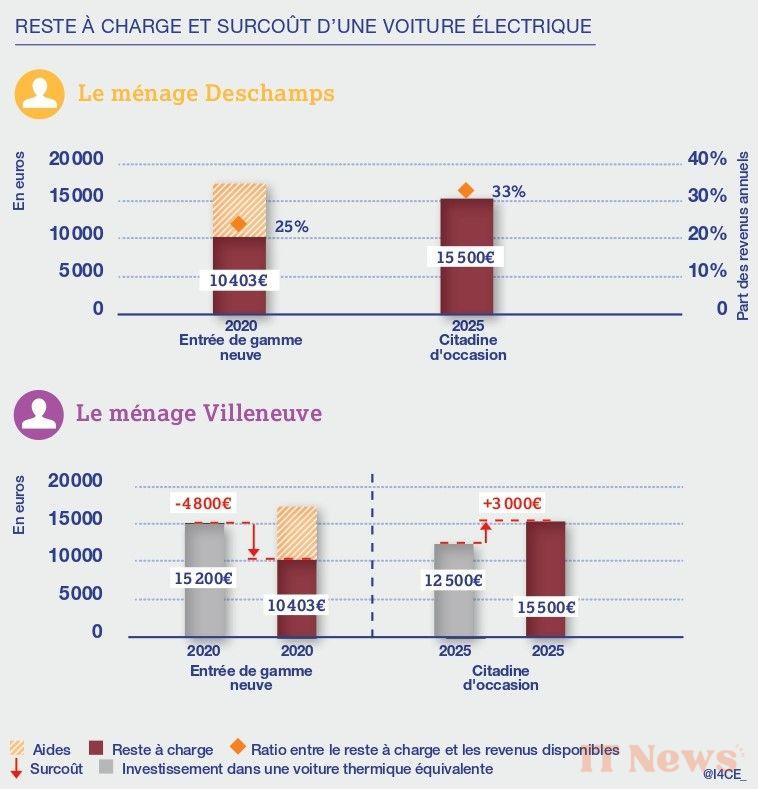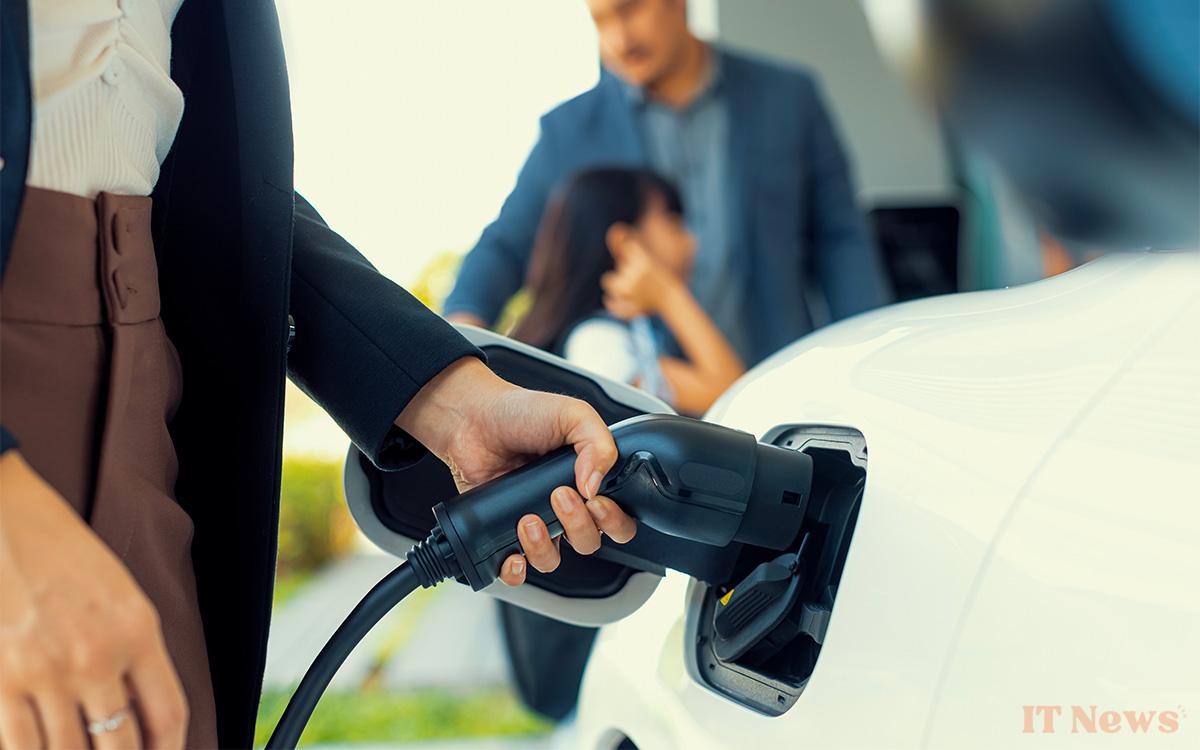Can a middle-class French household financially afford to invest in an electric vehicle? In a new study, researchers crunched the numbers to see if the ecological transition is truly a privilege that only the wealthiest can afford.
The government is pushing for the adoption of an electric vehicle, but is this type of purchase really accessible to the French middle class? The Institute for Climate Economics (I4CE) has just published its observatory of the conditions of access to the ecological transition for households in 2025. Its conclusions are mixed.
For this study, the I4CE took as an example two fictitious households corresponding to a typical profile: homeowners, dependent on the car on a daily basis, made up of two parents and two children. The Deschamps family lives in a rural area and is part of the lower middle class (household income of €3,900 per month). The Villeneuve family lives in a peri-urban area and is part of the upper middle class (€4,700 per month). Let's see for these two cases what the impact of acquiring an electric vehicle on their finances would be.
Fuel savings don't cover the remaining cost
The first scenario features the Deschamps household, who don't specifically need to change their car. Is it profitable to keep their old combustion engine car or invest in an electric model? Bad news, the remaining cost of switching to electric has increased significantly over the last five years. The I4CE suggests an increase of between €5,000 and €10,000 over the period, depending on the desired vehicle. It is therefore less attractive to buy an electric vehicle now than it was a few years ago.
Despite this loss of interest, it could still be more advantageous on average to make the transition from combustion to electric in 2025. The fuel savings are greater today than five years ago, but only slightly. They were around 110 euros per month in 2020, they are 120 euros in 2025. Such a difference is not enough to cover the monthly credit payments, states the report.
The I4CE estimates that in 2024, only the device social leasing would have allowed the Deschamps household to access an electric car while reducing their mobility budget. But the organization notes that questions about its renewal and the prohibitive buyout price of certain contracts do not make it a particularly reliable long-term option. For the Deschamps, the verdict is clear: switching to electric risks weighing too heavily on their finances.
Fear of a loan that costs more
The Villeneuve household is a little more affluent and needs to replace their car. Here, we compare the purchase of an electric car to that of a thermal car of an equivalent range. In 2020, “a new entry-level electric car was almost 5,000 euros cheaper to buy than its thermal equivalent”, we are reminded. The situation has changed and is no longer as favorable. “The remaining cost for an electric car currently exceeds the price of its thermal equivalent by a few thousand euros,” reports the I4CE.
This will not encourage the Villeneuves to abandon their old habits… unless the fuel savings made possible by switching to electric vehicles cover the increase in monthly loan payments compared to a thermal vehicle. And this seems to be the case. “In 2025, the Villeneuve household could see its mobility budget – including all costs related to its car, including the purchase through a loan – drop by a few dozen euros” by switching to electric.
The option is therefore viable, but economically, the difference remains small, and perhaps not sufficiently incentivizing. Will a household shake up its routine (charging rather than gas pump) and take the risk of discovering a new technology to save a few euros? Nothing is less certain, especially since when making a choice, it is easier to quantify the increase in the cost of credit than the savings made on fuel.
Why buying an electric vehicle has become less profitable over time
A few years ago, investing in an electric vehicle rather than a combustion engine was clearly a good idea from a financial point of view. Consumers' doubts stemmed more from the durability of the battery, the range of electric cars, the development of the charging infrastructure, as well as the charging time.
While most of these fears have been partially or completely dispelled today, electric vehicles are no longer such a good deal for household budgets. The main factor explaining this phenomenon is the slowdown in purchase subsidies. The elimination of the conversion bonus, the reduction of the ecological bonus, and the establishment of stricter eligibility criteria are cited as reasons for the increase in the remaining cost for the purchase of an electric car.
The I4CE also mentions a rise in the prices of electric cars in general. Manufacturers agreed to cut their margins when launching their electric ranges because they had to convince consumers to opt for their new models, taking into account the fears we mentioned earlier. An affordable price was a good way to attract them. Now that electric vehicles are establishing themselves on the market, they have raised their prices. The economic context, with high inflation in recent years, has of course not helped. The COVID-19 epidemic seriously affected the automotive industry, which took years to recover.
There are still a few arguments to be made in favor of electric vehicles in 2025. To offset the price increases, brands have launched more entry-level and accessible models. However, this does not take away from the fact that for the same budget, you could get a better electric car than you can now. Of course, each situation is different. It's up to you to do your calculations based on your transportation and consumption habits to determine if you can afford to buy an electric vehicle.






0 Comments